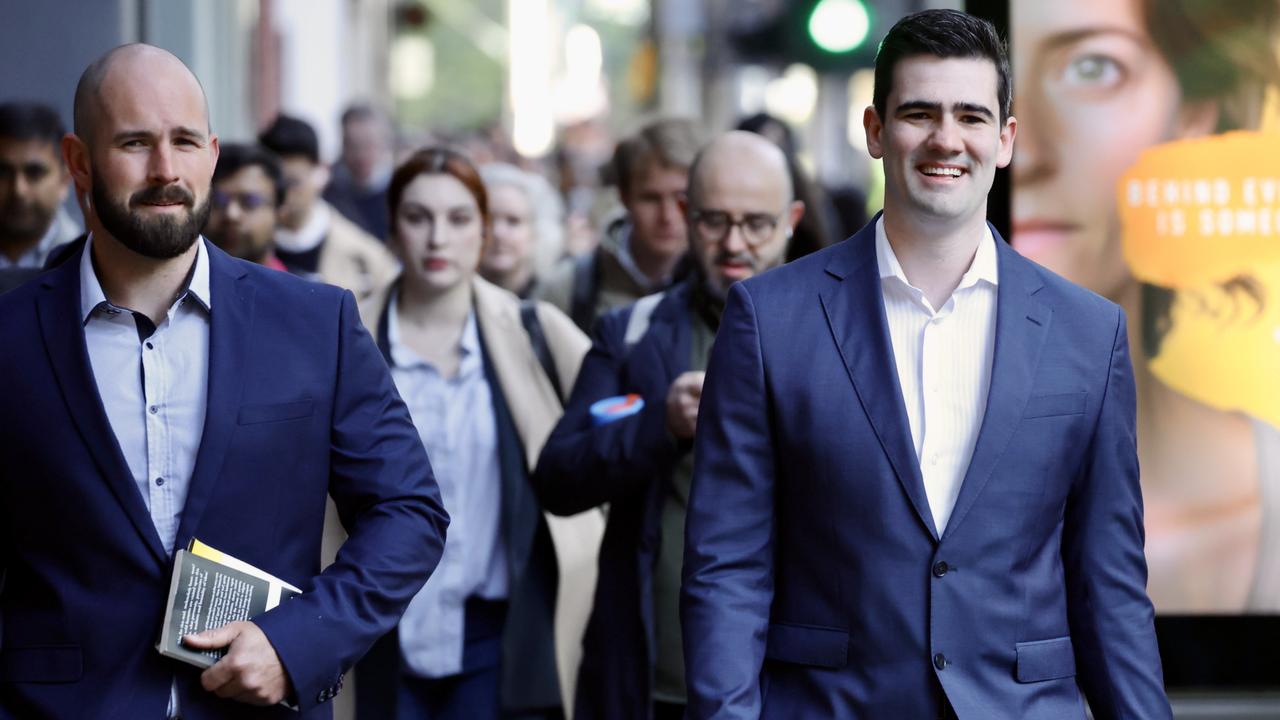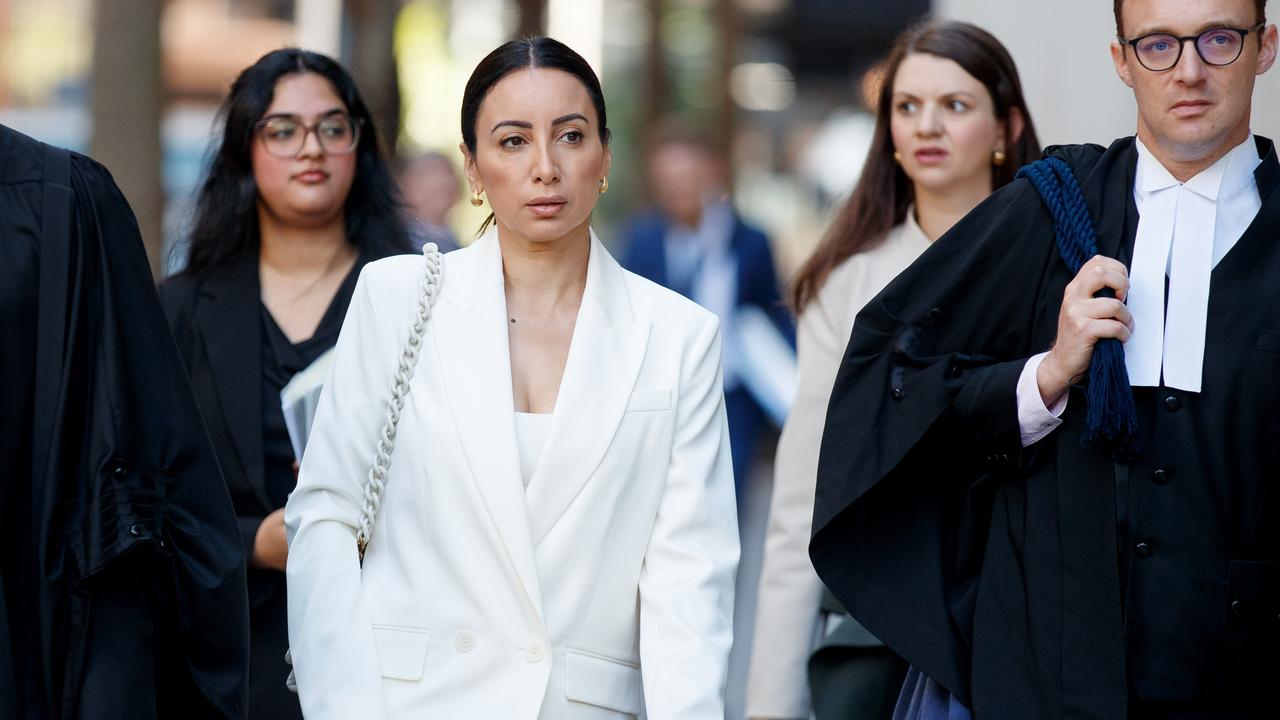Fijian PM Sitiveni Rabuka gives allies a Pacific dose of green clarity
Fijian Prime Minister Sitiveni Rabuka rejects claims that Pacific countries are being endangered by Australia’s ‘hypocritical’ expansion of gas and coal production.
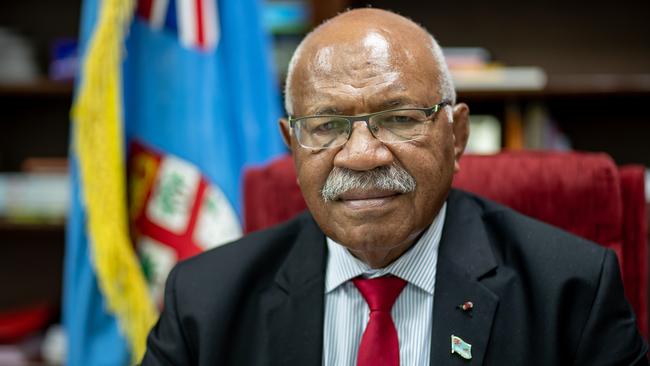
Fijian Prime Minister Sitiveni Rabuka has rejected claims by fellow Pacific leaders that their countries were being endangered by Australia’s “hypocritical” expansion of gas and coal production, declaring “we should not blame Australia for climate change”.
In an interview with The Australian, the most experienced of the Pacific nation leaders says the region’s transition to green energy must “walk apace with development and affordability”.
Mr Rabuka also said he remained concerned about China’s encroachment into the Pacific, pledged to further strengthen Fiji’s ties with Australia, and acknowledged his government had been hurt by a nude video scandal involving MP Lynda Tabuya, his former minister for women and children.
With Australia’s bid to preside over the crucial COP31 climate conference now threatened by an aggressive rival claim from Turkey, the support of West-leaning Pacific nations such as Fiji has become imperative for the Albanese government.
Vanuatu’s special envoy on climate change Ralph Regenvanu has argued that “for Australia to be seen as a credible leader of climate talks, it must first resolve glaring inconsistencies in its climate policies”.
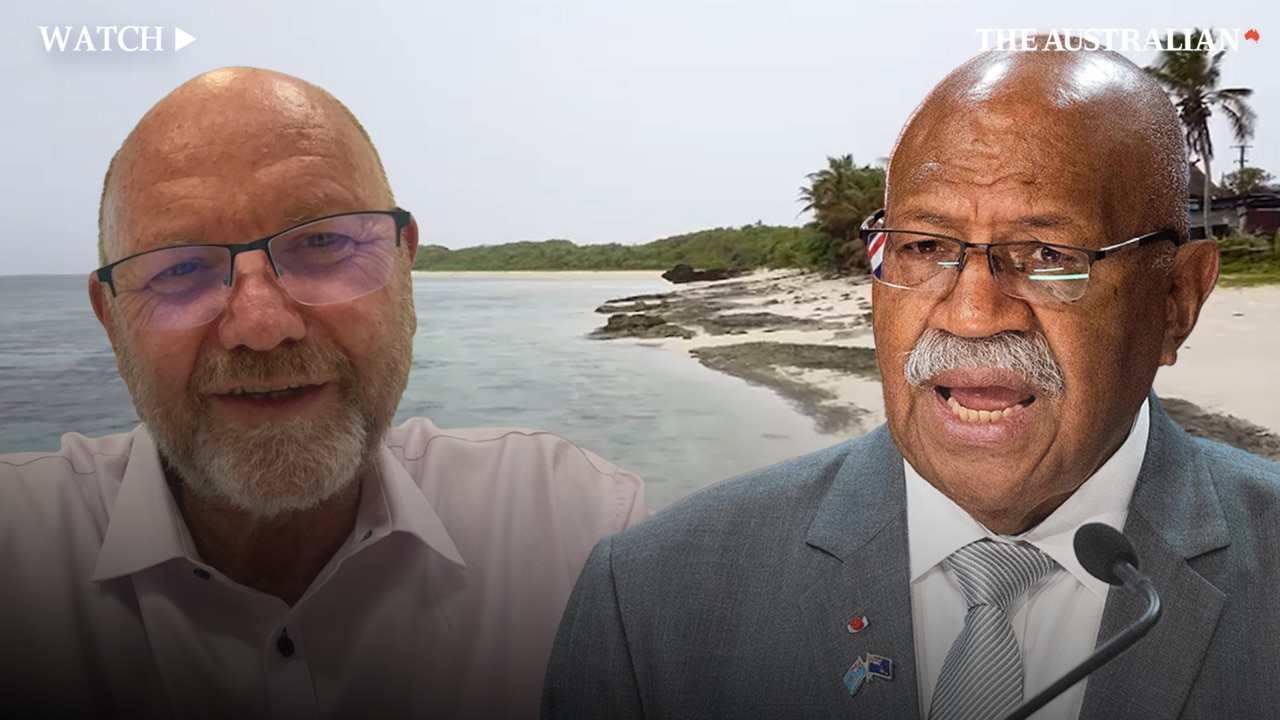
Mr Rabuka told The Australian he understood Mr Regenvanu’s concerns about climate change but said: “I do not think we should be blaming anyone.”
“We should all be vociferously pointing out our concerns to the world and not blame Australia or closer neighbours. They do feel the same effect of what we’re going through, and the Pacific Island leaders have accepted the slow transition from fossil fuel to renewable energy, and we can only walk apace with development and affordability.”
Asked whether the Albanese government was doing enough on climate change, Mr Rabuka said: “We can both up our act, on the Pacific front and the Australian front, but then we should not be expecting too much.”
“Our problem is that we feel like victims in the equation, in that we have not contributed much to the degradation of the environment while we suffer the brunt of the effect of climate change and rising sea levels,” he said.
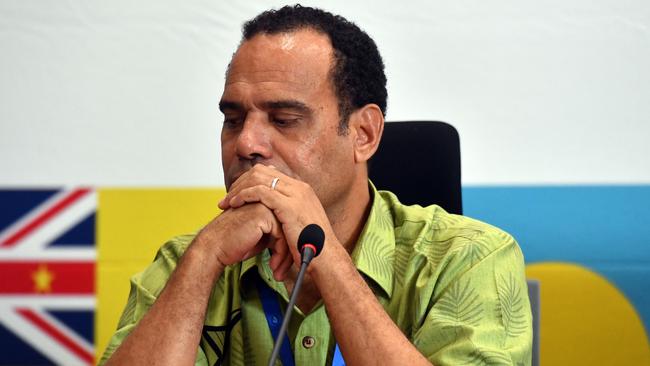
The UN’s Conference of the Parties is the world’s most important forum for negotiating lower emissions – and COP31 is a particular opportunity for Australia to strengthen ties in the Pacific through green diplomacy.
Mr Rabuka could prove a key ally in Australia’s push to host the global summit, with Climate Change and Energy Minister Chris Bowen spruiking a partnership with Pacific nations to beat Turkey , which argues that unlike its rival, it is not a major fossil fuel exporter.
Several Pacific nations, including Vanuatu and Tuvalu, are angry about Australia’s expansion of fossil fuel production.
Mr Regenvanu, Vanuatu’s former foreign minister, urged those countries voting on the COP31 presidency to “consider not just Australia’s words but its actions as it plans some of the largest fossil gas expansion in the world in the run up to 2050”.
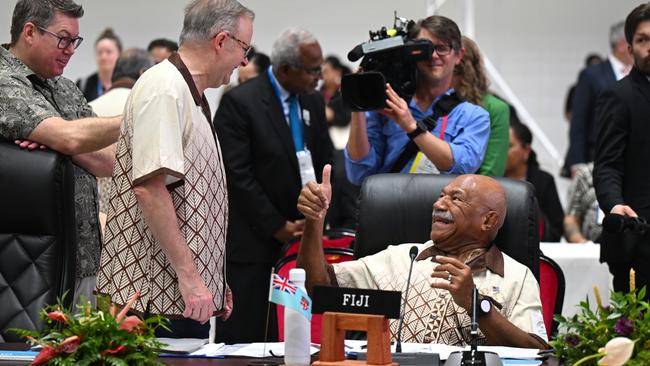
Earlier this month, Anthony Albanese claimed he was better placed than Peter Dutton to forge a productive relationship with Donald Trump because his close ties with Indo-Pacific leaders would be valuable to the US president.
Mr Rabuka stressed he had very good relations with both Australian leaders, and had met the Opposition Leader while he was in Australia campaigning in 2022.
“As far as Fiji is concerned, we have two great friends competing against each other,” he said.
The Prime Minister said Pacific leaders had not forgotten Mr Dutton’s joke in 2015 – caught on a boom mic – making light of rising sea levels in the region. “They all remember him joking about the impact of climate change on their countries,” Mr Albanese said.
Mr Rabuka said he didn’t remember the incident “but I understand the fear and uncomfortable feeling that some Pacific Island leaders might have felt when Peter Dutton mentioned what he allegedly mentioned”.
The two-time Fiji coup leader returned to power in elections in 2022, overturning arch-rival Frank Bainimarama’s 16-year hold on power, with a mission to restore closer ties to the US, Australia and New Zealand.
China’s influence in Fiji flourished as Australia and other Western powers turned their backs on the country in the wake of the Rabuka-led coups in 1987 and after the 2006 Bainimarama-led coup.
Last year, Mr Rabuka kicked out Chinese police stationed in Suva police HQ and entered a series of policing agreements with Australia, in large part to help deal with Fiji’s worsening drug problem.
“Now we have a closer relationship with Australia and New Zealand, particularly in the law enforcement area, where we had grown very close to China and which was not surprising, considering the fact that Australia, New Zealand and America turned away from us in our hour of need,” Mr Rabuka said.
He said his government would not go down the path of Solomon Islands, where Beijing’s notorious Ministry of State Security police have been allowed to operate in every province, training local law enforcement in riot control and weaponry and, as The Australian recently revealed, even providing martial arts training to children.
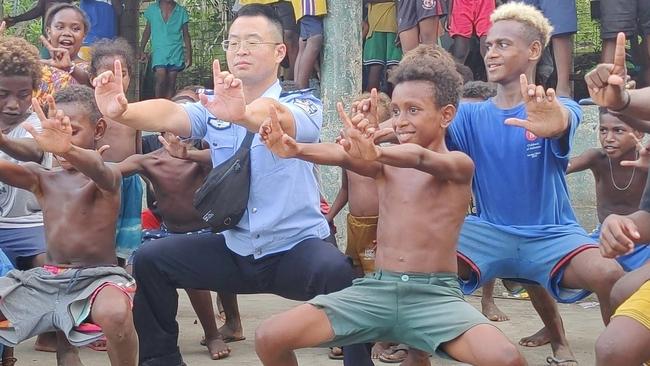
“We do not have any presence of the Chinese police now, but we have an increasing participation of Australian Federal Police coming in slowly – now they are going to be embedded in our headquarters,” Mr Rabuka said.
The Fijian Prime Minister met Chinese President Xi Jinping during a 10-day visit to Beijing last year, with the pair pledging to deepen development ties, but he told The Australian the spread of China’s influence in the Pacific was “still a concern, and it is something we have to accept in a responsible manner.
Beijing’s “soft diplomacy” continues in Fiji, where an agreement signed last week with the Chinese government will see Mandarin being taught in 12 schools by Chinese teachers.
Mr Rabuka played down the agreement – and any suggestion the move was another pointer to Beijing’s longer-term ambitions in the Pacific – insisting people “should not to be too worried about that” because Fiji already had Chinese community-run Sun Yat Sen schools. “I think it is only right that they teach those languages to their students because a lot of them will go back to China – a lot of them have family links still in China,” he said.
At the age of 75, the sports-mad Mr Rabuka won a bronze medal in shot put at the Oceania Athletics Championship last year, 50 years after representing Fiji at the 1974 Commonwealth Games in Christchurch.
But his political prowess is being sorely tested as he presides over a shaky coalition and a faltering economy.
The former coup leader has seen his government embroiled in a series of scandals, in December sacking Ms Tabuya after an explicit nude video of her went viral online.
The lawyer and former Miss Hibiscus beauty queen claimed the video was meant for her husband but it followed earlier allegations of a sex and drugs binge with married Education Minister Aseri Radrodro during a visit to Melbourne in August 2023.
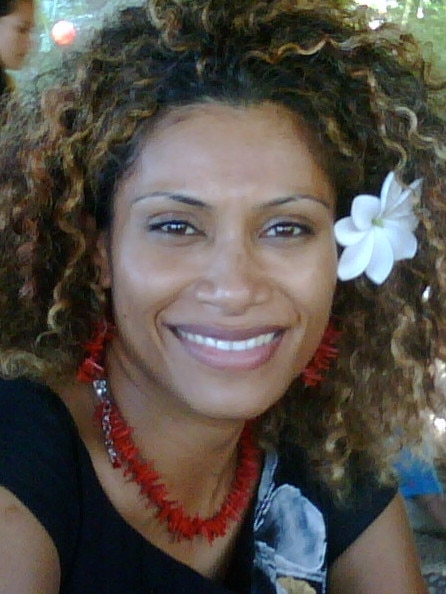
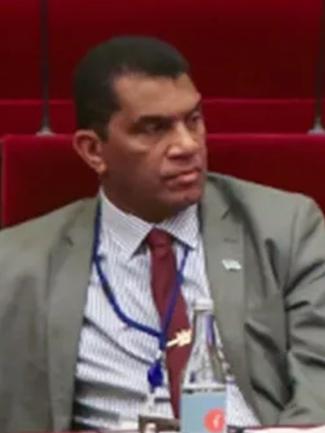
Mr Rabuka conceded the scandal had damaged his government but brushed it off as a human foible, citing Oscar Wilde.
“It shows that there have been instances in the past, in our personal past, and I must remind everybody who is critical about that, that every saint had a past, every sinner has a future,” he said.
Mr Rabuka also batted away suggestions he had been forced to bolster his hold on power by luring members of the opposition into his coalition with seats in a now-bloated ministry.
“It’s concrete, my position, and as we go into the next stage of the pursuit of the constitutional reforms, we need the numbers to vote those reforms into place,” he said.
Now 76, the man some Fijians still call “Rambo” appears to have no intention of bowing out of politics any time soon, with a general election due in 11 months.
Will he be running again?
“As our Muslim brothers would say, inshallah,” he said.


